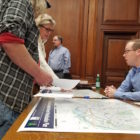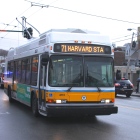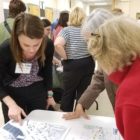Letters
LETTER: Watertown Deserves to be a Priority in MBTA’s Investment Plan
|
Letter To The Editor
The MBTA recently released its “Focus 40 Investment Plan.” On pages 13-19 of that plan, the MBTA gives an overview of which communities it considers “Priority Places” in its Focus 40 investment plan. https://cdn.mbta.com/sites/default/files/projects/focus40/2018-07-30-focus40-draft-plan-digital.pdf
I believe that Watertown (East Watertown in particular) deserves the “Priority Place” designation because it’s fits many of the criteria for a Priority Place listed on page 14 including:
“• Lack rapid transit service, but bus usage exceeds available capacity
• Face traffic congestion that compromises the performance of MBTA buses in mixed traffic
• Host major centers of activity or dense residential populations, but lack efficient public transit access
• Feature population or employment densities that support higher frequency transit”
I urge Watertown’s residents and local and state representatives to contact the MBTA to add Watertown to its “Priority Places” so that our small but growing city can get the public transit investments we need for our future,
Teddy Kokoros
Watertown Resident


